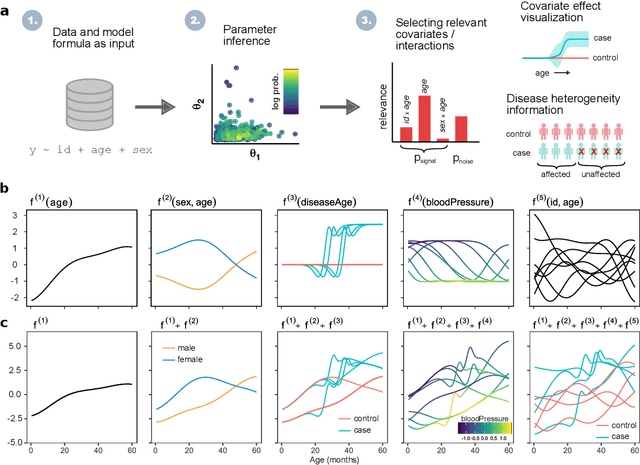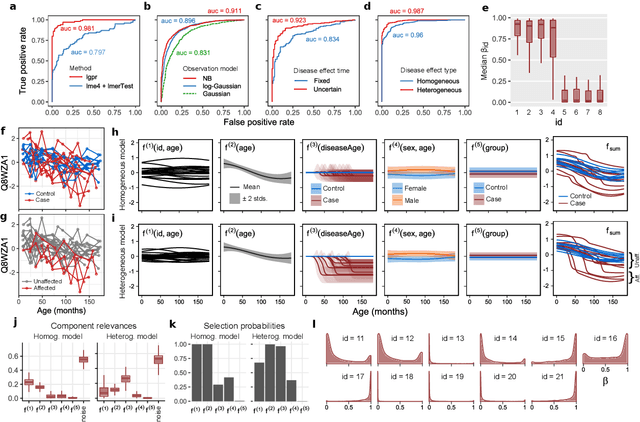An interpretable probabilistic machine learning method for heterogeneous longitudinal studies
Paper and Code
Dec 07, 2019

Identifying risk factors from longitudinal data requires statistical tools that are not restricted to linear models, yet provide interpretable associations between different types of covariates and a response variable. Here, we present a widely applicable and interpretable probabilistic machine learning method for nonparametric longitudinal data analysis using additive Gaussian process regression. We demonstrate that it outperforms previous longitudinal modeling approaches and provides useful novel features, including the ability to account for uncertainty in disease effect times as well as heterogeneity in their effects.
* 25 pages, 10 Figures. Tables S1-S2 in an ancillary file
 Add to Chrome
Add to Chrome Add to Firefox
Add to Firefox Add to Edge
Add to Edge